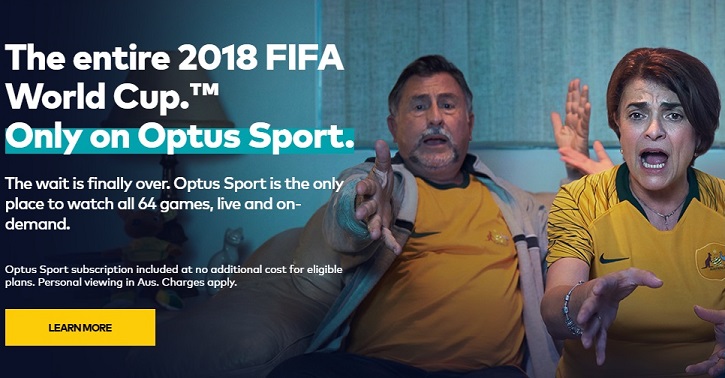It was the deal that reportedly cost the Australian telco upwards of $20 million, but Optus has been left red-faced over its abysmal coverage of the 2018 FIFA World Cup.
After securing the rights to show every game of the World Cup live from Russia on its streaming service Optus Sport, the company has been under fire on social media for buffering issues and poor-quality streaming.
The criticism was so immense that by Monday, Prime Minister Malcolm Turnbull was forced to step in, tweeting “I have spoken with the Optus CEO, Allen Lew. He assures me he is giving the World Cup streaming problems his personal attention and he believes it will be fixed this evening.”
But on Monday evening Allen Lew was not announcing that the issue had been resolved.
Rather, he was calling on a rival network to assist.
“We know Australian football fans are amongst the world’s most passionate, and vocal, and we clearly understand Australia’s passion for this major event, and the frustration that goes along with not being able to watch the event,” the Optus CEO said.
“In light of this Optus has announced that it will simulcast the next two nights of 2018 FIFA World Cup matches with SBS.
“I offer an unreserved apology to those customers that have been let down. We have a dedicated team which has been working around the clock to address technical issues where they have occurred.”

Hey, where did the picture go?! An Optus ad for the 2018 FIFA World Cup. Source: Optus
SBS, which has shown every World Cup in its entirety since 1990, was set to only broadcast 25 of the 64 games this year, including every Australia game, the semi-finals and final.
But the free-to-air broadcaster will now broadcast at least an additional four matches, assuming Optus Sport resolves the issue after 48 hours.
Optus Sport customers pay $15 per month for the service.
While Lew’s statement made no mention of a possible refund, it did mention that a number of Fetch Mini boxes would be made available to customers to help improve the experience, but this was mocked on social media after the boxes were found to be in short supply at retailers.
Optus Sport burst onto the Australian market in 2015, when it was announced it had secured the rights to broadcast the English Premier League until 2019.
But even in the early days, Optus Sport faced backlash from customers over poor quality streaming.
While some accused Optus of taking shortcuts on backend infrastructure, Optus Vice President of regulation and public affairs, Andrew Sheridan, said the technical issues were simply due to unprecedented demand.
“We absolutely put a lot of investment into ensuring that we can deliver the best possible experience,” he told Fairfax Media.
“I can absolutely guarantee that we did not under-cater in any shape or form.
“We thought we were ready but the simultaneous volume was much greater than we had anticipated.”










